 As part of my participation in the Magic Appreciation Tour, I’m interviewing fellow author Christopher Kellen. This is the first author interview I’ve hosted on my blog, and I had a fun time doing it. I hope you enjoy it.
As part of my participation in the Magic Appreciation Tour, I’m interviewing fellow author Christopher Kellen. This is the first author interview I’ve hosted on my blog, and I had a fun time doing it. I hope you enjoy it.
Chris was the sixth author to sign up for the MA Tour and has been one of the most enthusiastic participants, so I’m excited that I got the chance to interview him. Of course, it helps that I’m the “man behind the curtain” of the MA Tour Post Exchange. 😉
Chris is the author-publisher of three books (The Corpse King, Sorcerer’s Code, and Elegy) and two short stories (Dutiful Daughter, and An Unfortunate Destiny). Like many authors, Chris has a day job to support his writing habit. He is also an avid gamer and voracious reader. You can learn more about Chris and his books at his blog Eye of the Storm.
Okay, enough preamble. Here comes the interview!
How long have you been writing fiction with the intent to publish it?
Publication has always been a thought at the back of my mind. When I was very young (10-12 years old) I spent lots of time researching publishers’ submission guidelines, because I planned to write something for them someday. Of course, at the time I had no idea about the agent game!
I had a big problem, though, in that I had a lot of difficulty finishing my work. I had a lot of great ideas and probably hundreds of “beginnings” to stories, but never an ending. That didn’t start to change until 2005, when I did my first National Novel Writing Month and won. The “novel” I wrote was absolutely terrible, but it was complete.
From 2006-2007, I spent some time as a 1/3rd owner of a small publishing company, doing illustrated versions of public domain work (we started with Burroughs’ A Princess of Mars and went from there). My job was layout and design, and while that didn’t directly affect my writing per se, it did help build my confidence in the idea of going independent.
In 2011, I needed a submission for my writers’ group, so I dusted off my 2008 NaNo project (Elegy) and had them look it over. After taking into account a lot of great revision suggestions, the book was significantly more polished, but still only about 50,000 words. My thoughts of publication started drifting through my head again, but my wife’s knowledge of the publishing industry was enough for me to know that no agent or editor anywhere is going to take on a fantasy project at 50,000 words.
After some thought, I made the decision to go indie and do it myself, and here I am!
Daniel says: Good for you! The self-publishing movement has certainly erased a number of traditional boundaries. My novel is 75,000 words, and even that is too light for a fantasy publisher to consider. If we were still limited by the rules of traditional publishing, no one would be able to read our books right now!
How has gaming influenced your writing?
In lots and lots of ways. There’s two major components to this, so I’ll split this answer up.
Pen & Paper Gaming (Dungeons & Dragons, etc)
D&D is the reason that I discovered the storyteller in me. Without it, I probably wouldn’t be doing this at all. I got introduced to the game by my parents when I was 6 years old, and their Dungeon Master wrote a game for “the kids” set in a place called Fairy Tale Land. For example: the “three little pigs” were orcs, and the “Big Bad Wolf” was a werewolf who was trying to eat them all. After that game was such a rousing success, I started playing in the games with the adults.
A couple of years later, their DM moved away, and the gaming stopped. Of course, we still had all of the books, and around the time I was 12, I started DMing games for my friends. They were terrible, of course, but we usually had a good time anyway. When I was 15 or so, my old DM moved back to town, and he and I started working together on games, and I ran what I still consider the best game I ever created, set entirely in an original world. All of the players, including my DM, still talk about it to this day.
D&D taught me vital storytelling skills: world-building, plot development and character management spring quickly to mind. Of course, as it turns out, it’s very different to write a novel where you have to come up with all the plot and characters yourself, instead of relying on a table full of players to inspire you. Still, if I had never been forced into the DM role simply by matter of the fact that I was a voracious reader and had friends who really wanted to game, I probably wouldn’t be writing today.
Daniel says: This is fascinating. I trace my storytelling roots back to being a Dungeon Master as well. I actually put Gary Gygax and Dave Arneson into the acknowledgements of my book.
Video Gaming
At least one of my Amazon reviews has noted a very “video game” vibe to the plot of Elegy. When you’re staring at a blank document on November 1st that needs 50,000 words in it by November 30th, you tend to use whatever you can think of to help you get there. In Elegy‘s case, I decided to structure it that way to help me from getting bogged down in the middle.
By creating 5 acts, each with their own adventure and villain that tied into the whole by being set in a single city, it allowed me to move from point to point, building to a climax and then moving to a different part of the city, keeping the story interesting for myself, which is really the reason I won that year and came out with a cohesive story at the end, instead of a muddled mess like usual.
I’m not sure if I will ever work with that specific plot-structure device again, but it was certainly educational and effective… so I might.
Daniel says: Video gaming indirectly inspired me as well, although not from a structure standpoint. I was blown away by the detail put into the story lines of Oblivion and thought it would be cool to write for a game like that. Then I decided, if I would be willing to write for a gaming company, why not just write a novel for myself instead?
What gave you the idea for the Arbiter characters in your stories?
Well, I’ve been thinking about the “crystal swords” for a long time. They date back probably 10 years or so to an aborted story attempt, mostly because I really wanted (and I’ll be honest here) a fantasy alternative to the lightsaber.
The Arbiters (and D’Arden Tal in particular) are devised of a sort of mathematical formula, or maybe a recipe. When I had the great fortune a few years ago to be introduced to the writings of Robert E. Howard and Karl E. Wagner, I found myself enthralled by the “swords & sorcery” genre that seemed to be all but dead in the modern world. Their heroes did not face world-sweeping stories like the ones in most of the fantasy I had read (at least, not usually). One of Howard’s heroes in particular, the wandering Puritan named Solomon Kane, really stood out to me as the type of character I might try writing.
Then, closer to the writing of Elegy, I discovered Andrzej Sapkowski and The Witcher, Geralt of Rivia, and I was given another dose of that dark fantasy/swords & sorcery vibe, and another incredibly badass hero.
D’Arden was the first character I devised for Elegy, and I wanted him to have the dark intensity and competence of Geralt but with the sort of fervent, spiritual bent that Solomon Kane carried against the monsters he fought. When I made the world (now named Eisengoth) with a bleak touch of H.P. Lovecraft, the Arbiters suddenly resolved into clarity. I had a quasi-spiritual order charged solely with destroying the horrible monsters that plagued the world.
Then I gave him a crystal sword, and everything finally fit together.
Daniel says: That’s an interesting tale of provenance. I’m astounded by the commonalities in our background, in spite of a couple of decades difference in age. When I first started DMing, I invented a series of “clear swords” in different colors that had different abilities. The red one cast a fireball, the blue one could cast lightning, etc. However, I think this was before the first Star Wars came out.
I see that you write both fantasy and science fiction. Do you have a preference for writing one over the other?
I grew up stretched between the two. Star Trek: The Next Generation started airing when I was 2 years old (in 1987) and my dad was a huge fan, so that’s influenced my earliest memories. Then, as I said, I started playing D&D when I was 6 and reading fantasy novels before that (I started reading early), so I really love them both.
That being said, I think there’s a greater variety of fantasy fiction already written, which makes it both easier and more difficult. Science Fiction spent a lot of time being dominated by guys like Asimov and Heinlein, whereas I really prefer the rousing space opera style (go figure).
It’s very interesting to me that both science fiction and fantasy let us explore the same things, but in different ways. In fantasy, the “do-whatever-I-say”-ness of magic lets the author get away with just about anything, as long as they can justify it to the reader. In science fiction, you have a much stricter set of rules, but in the end it basically comes down to the same thing – whatever you can make believable, you can do. There’s a higher standard to meet in sci-fi, though.
Overall, I find writing fantasy easier, but I very much enjoy writing both. I’m looking forward to finishing Legacy (Arbiter Codex Book 2) so that I can devote some energy to the sci-fi follow-up novel I’m writing for my short story Dutiful Daughter.
Daniel says: I never cared much for the “old guard” sci-fi authors like Asimov and Heinlein myself. I didn’t get into sci-fi until I discovered authors like Frank Herbert, Peter David, Orson Scott Card, David Weber, and the Star Trek book series in general. Dune is still one of my favorite books of all time. Although I enjoy reading science fiction, I’ve never had much desire to write it. I look forward to reading Dutiful Daughter and the follow up.
How do you find time to write books, play video games, have 2 in-person game nights, hold down a day job, and keep a wife happy?
That is a really good question. It helps that my wife is also a writer, so she needs time to devote to her projects just like I do to mine. I squeeze writing in wherever I can, any time I have a spare few minutes, which is not always easy. My game nights are sacrosanct; I always plan to be there, unless there are extenuating circumstances.
My day job in IT support keeps me busy, but I have definitely written on breaks. If I’m able to get my word allotment in for the day on my lunch break, for instance, that leaves the evening open for some video gaming. (Speaking of which, Mass Effect 3 launches today and I couldn’t be more excited!)
It’s mostly a matter of blocking out time and prioritization. Of course, I’ve done most of it on instinct, so let’s hope it doesn’t all come crashing down now that I’ve had to examine it! 😀
Daniel says: It sounds to me like you have it dialed in just fine.
*****
So there you have it! My first interview. We did the interview via email, so we didn’t have a chance to go back and forth at all. I hope the little interjections I added didn’t ruin the flow. If they did, let me know and I’ll be sure not to do that again.
I’d like thank Christopher Kellen for being my first interview subject and being willing to share so much of his personal story in his answers to my questions. If you would like to share any of your own experiences related to our discussion, feel free to put them in the comments!
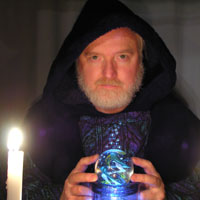
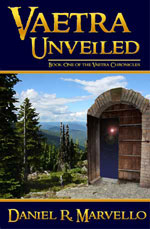
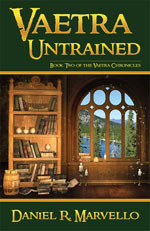
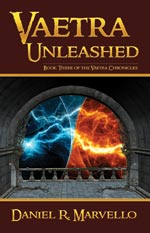
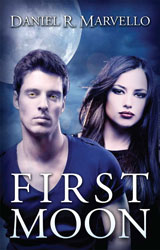
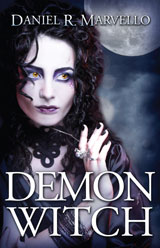
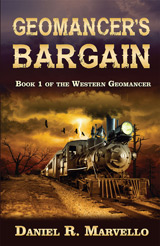
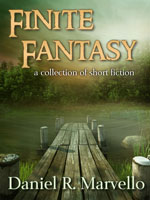
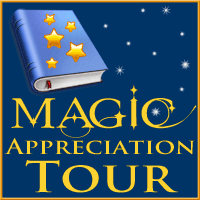

I really enjoyed this interview. The interactions actually added personalisation, don’t leave them out 🙂
I’m a bit of a gamer (although only mmo’s. Does that count?). So many people have said they got their start from D&D. I’m truly sorry never to have been involved 🙂
Thanks for commenting, Sarah. I’m glad you liked the interview. Yes, MMOs definitely count as gaming! As for being involved in D&D, it’s never too late!
I’m honestly surprised that people still engage in role-playing games in person. It sometimes feels like everyone has become so attached to their electronics that personal interaction has become archaic. I’m glad to know that’s not always the case.
I wish I had known D&D players that were writers. I would have loved the games that came out of having such creative minds to network with.